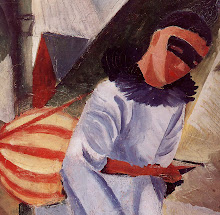Just today, I contributed a post to FIRE's weblog, The Torch. It concerns a debacle at the University of Wisconsin's Law School, where a professor made very provocative statements about the Hmong people. (There are a number of them in Wisconsin and Minnesota, and relations with non-Hmong neighbors are apparently testy.) The professor, Leonard Kaplan, allegedly said:
These statements were in an email from a student, KaShia Moua. It is not clear if she was in the class at the time or not. Prof. Kaplan has defended his statements, however; he says that he merely wanted to show how some defendants might rely on cultural practices and attitudes as a defense in serious crimes, such as rape.
An unavoidable problem with defending free speech rights is that it almost always involves defending speech that, rightly or wrongly, has offended someone. (Otherwise, it wouldn't need defending.) Prof. Kaplan's statements, if true, are in dubious taste, to my mind -- even allowing for his explanation. And yet, the pedagogical value of extreme examples is pretty clear. Provocative hypotheticals are a great way of getting students to test the boundaries of rules and the logic that underlies them, and professors should not be unduly hampered in their use of this effective tool.
One of the first cases I worked on at FIRE involved George Fletcher, a criminal law professor at Columbia University. He was taken to the woodshed for an exam question -- based on a composite of actual cases! -- in which the victim of a violent assault was actually thankful to her assailant because the attack caused her to miscarry the child she was bearing. As in the Kaplan case at UW-Law, the pedagogical value of such a shocking scenario is fairly clear -- yet Prof. Fletcher was told by Dean David Leebron that his exam question may amount to discrimination and harassment.
Prof. Fletcher was ultimately vindicated, thanks to FIRE's help. As for Prof. Kaplan, he may not need any help (knock on wood): the administration has thus far declined to take any action against him. UW-Law administrators have responded to this fracas in a much more responsible manner than did their Columbia Law counterparts. Let's hope this continues.


No comments:
Post a Comment